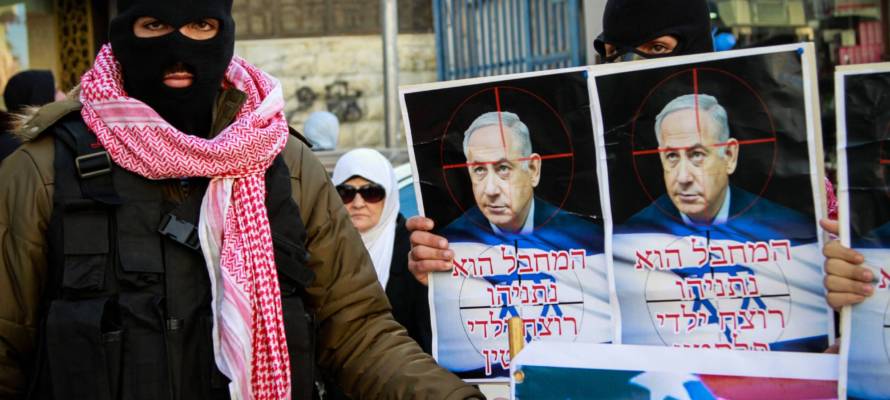The Palestinian order promotes the appearance of freedom of opinion but is likely to lead to the release of Hamas operatives near Jewish communities.
By Baruch Yedid, TPS
In a presidential decree issued by Palestinian Authority (PA) Chairman Mahmoud Abbas (Abu Mazen) last month, he promises to promote and strengthen public and political freedom ahead of the upcoming legislative and presidential elections.
Following this order, the release of political prisoners in the PA and the Gaza Strip, including dozens of Hamas operatives, is expected.
A question that arises in this matter concerns the continued arrests made by the PA among Hamas operatives in Judea and Samaria, as part of the security coordination with Israel. Recently, Hamas activists in Judea and Samaria complained that the PA had made a wave of arrests to undermine their preparations for the elections and that Israel had made arrests among senior members of Hamas’ Judea and Samaria leadership.
The order is based on the PLO’s basic laws and a series of amendments to the election laws of 2003 and 2007 and is in line with the Cairo agreements from February 9 reached by representatives of the Palestinian factions.
The order is binding for all parties in the Palestinian arena and is valid for all areas, including eastern Jerusalem and the Gaza Strip.
The order is intended to ensure and promote a “climate of public liberties,” including freedom of political and national activity and emphasizes that prosecution, imprisonment, or detention due to opinion and political affiliation will be banned.
The order directs the release of detainees and prisoners imprisoned for political and partisan positions and gives complete freedom to political activity in the run-up to elections, activities on social networks, in the media, publications, conventions, and meetings. The order also guarantees for all lists running in the elections equal opportunities in coverage in the official media.
Abu Mazen justifies the order following “the exceptional circumstances the Palestinian people are facing” and Palestinian Justice Minister Mohammad Shalalda said in an interview with the Palestinian media that the order would apply to all Palestinian Authority territories and would release all political detainees.
The order stipulates that members of the Palestinian police in uniform will secure the polling stations, also in the Gaza Strip and the entire election process, and will work to ensure that it is carried out in accordance with the provisions of Palestinian law.
Hamas spokesman Hazem Qassem commented on the order, saying that the presidential order was one of the conditions raised by the factions in Cairo ahead of the election.
The Palestinian Authority is now waiting to see if Hamas will agree to the presence of Palestinian police officers around the polling stations in the Gaza Strip.
Another question now being asked by the PA is regarding the continued persecution and arrests among the men of Muhammad Dahlan, Abu Mazen’s political rival. This weekend, TPS learned that some of Dahlan’s men in eastern Jerusalem are still wanted for questioning and some of them received phone calls and were called in for questioning in Ramallah.
Meanwhile, it should be noted that alongside the “public liberties” order, Abu Mazen issued another order instructing at least seven seats to be reserved for Christians in the Legislative Council.










